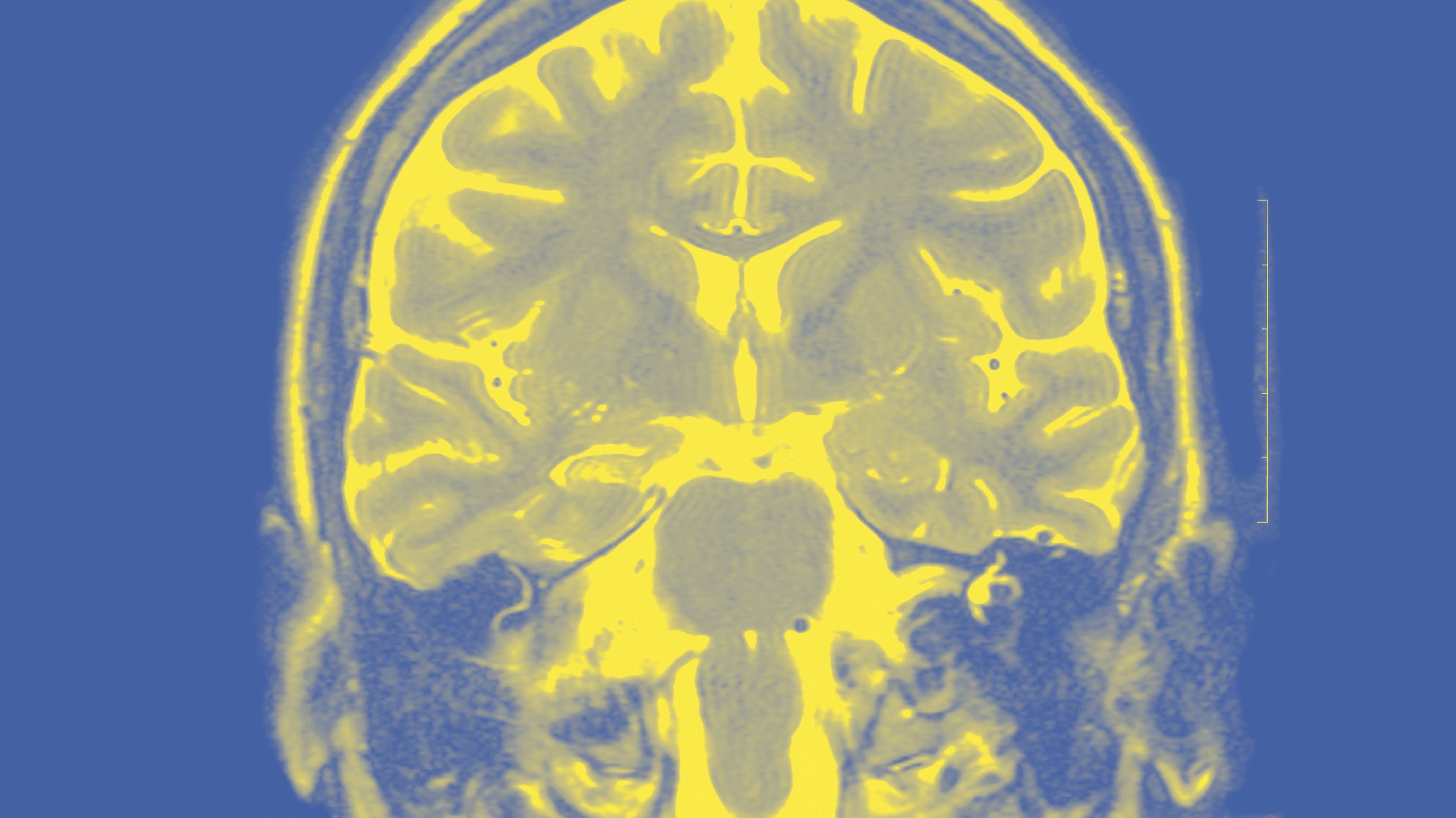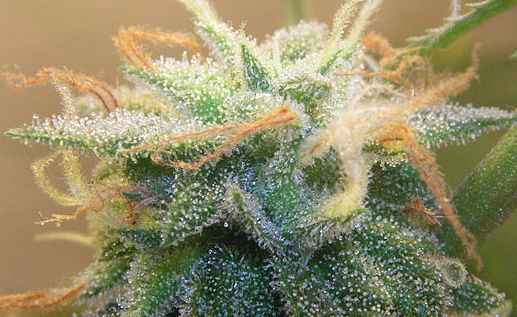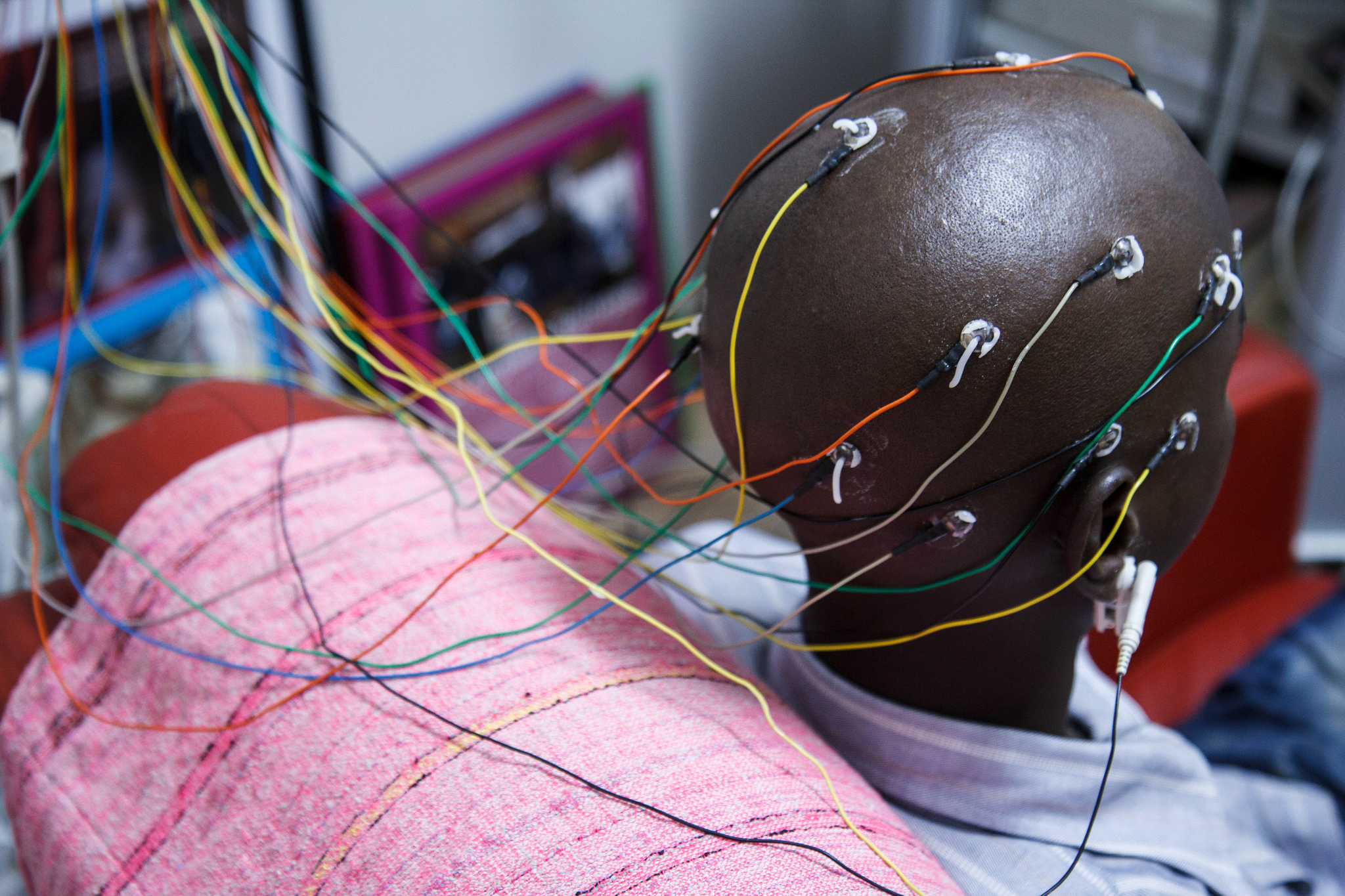
Health & Medicine
Understanding epilepsy

A major scientific breakthrough finds that a type of medicinal cannabis significantly reduces convulsive seizures in children with a severe form of epilepsy
Published 25 May 2017
A form of medicinal cannabis has for the first time been shown to reduce seizures in a severe form of epilepsy, with a few children now seizure free after taking it.
A study of children suffering from Dravet syndrome, a severe epilepsy that begins in infancy with drug-resistant seizures and a high mortality rate, found that 5 per cent of subjects reported that seizures stopped after being treated with cannabidiol, a non-psychoactive form of cannabis.

Overall 43 per cent of children with the syndrome had a 50 per cent reduction in seizure frequency with cannabidiol.
An international team of researchers including University of Melbourne Chair of Paediatric Neurology and Austin Health Director of Paediatrics, Professor Ingrid Scheffer, studied cannabidiol for the treatment of seizures. The results are published in The New England Journal of Medicine.
Known as CBD, cannabidiol is a natural compound found in cannabis seeds, stalks and flowers, that does not have the psychoactive properties of tetrahydrocannabinol, or THC.
“This is a major scientific breakthrough,” says Professor Scheffer.
“It’s the first scientific evidence that cannabidiol works. There have been anecdotal reports in the past, and people with firm beliefs that it works in epilepsy, but this is the first time it’s been proven.”

Health & Medicine
Understanding epilepsy
The trials saw 120 children and young adults across the US and Europe receive cannabidiol or a placebo, in addition to standard anti-epileptic treatment. The research was conducted for the Cannabidiol in Dravet Syndrome Study Group, and was a randomised, double-blind and placebo-controlled trial.
Researchers measured seizure frequency over a 14-week treatment period while the trial was underway.
They found that the average frequency of convulsive seizures per month decreased from 12.4 to 5.9 among those children on cannabidiol, compared with a decrease from 14.9 to 14.1 among those on the placebo.
“I am delighted that we finally have high-level evidence that cannabidiol is effective for uncontrolled seizures in Dravet syndrome,” says Professor Scheffer.
“If you can render any child or adult seizure free, that’s huge. It could contribute to stopping any further deterioration, or help development in a positive sense.”
Caregivers were asked to fill out the Global Impression of Change questionnaire – a seven-category system rating the scale of change in a patient. This found that the patient’s overall condition improved by at least one category in 62 per cent of the cannabidiol group, compared with only 34 per cent of the placebo group.
Although the frequency of total seizures of all types was significantly reduced with cannabidiol, there was no significant reduction in non-convulsive seizures.
But significantly, five per cent of patients taking cannabidiol became seizure-free, compared with none of the placebo group.
“Many people who take part in trials like this are desperate to try something new. They’ve exhausted other options,” says Professor Scheffer.

“Five per cent seizure free is not 100 per cent or 75 per cent, but it’s reassuring to see that improvement. For these 5 per cent of kids in the trial, it’s huge.”
But, Professor Scheffer warned that cannabidiol wasn’t a cure.
“Sadly this is not a panacea, it’s not going to cure these children,” Professor Scheffer said.
“But it does give cause to be optimistic about further research for its use. It also raises a lot of questions, not just in terms of the treatment of epilepsy, but where else it could be applied medicinally.”
“Cannabidiol is likely to be an important addition to our group of anti-epileptic tools.
While cannabidiol was found to be effective against seizures, the researchers also found that side effects were more frequent in the cannabidiol group - including diarrhoea, vomiting, fatigue, decreased appetite, increased body temperature, drowsiness and abnormal liver-function tests.
Worldwide, it’s estimated that around 1 per cent of the population have epilepsy, that’s approximately 65 million people globally.

Sciences & Technology
Q&A: How algorithms are fighting epilepsy
Dravet syndrome is a rare, catastrophic, lifelong form of epilepsy that begins in infancy. Previously known as Severe Myoclonic Epilepsy of Infancy (SMEI), it affects around 1 in almost 16,000 people.
Current treatment options are limited, and the associated seizures are particularly difficult because they are frequent, unpredictable, life-threatening and not controlled by many anti-epileptic drugs.
“The next question is whether cannabidiol is effective in other forms of epilepsy and it is great that there are trials already underway of cannabidiol in other groups of patients with epilepsy,” says Professor Scheffer.
This month, the first two commercial shipments of medicinal cannabis products arrived in Australia under the federal government’s new policy to allow controlled importation.
Federal legislation came into effect into effect in October last year, which the government says will “give patients and doctors access to a safe, reliable and legal source of cannabis”.
Banner: Epilepsy MRI/ Getty images